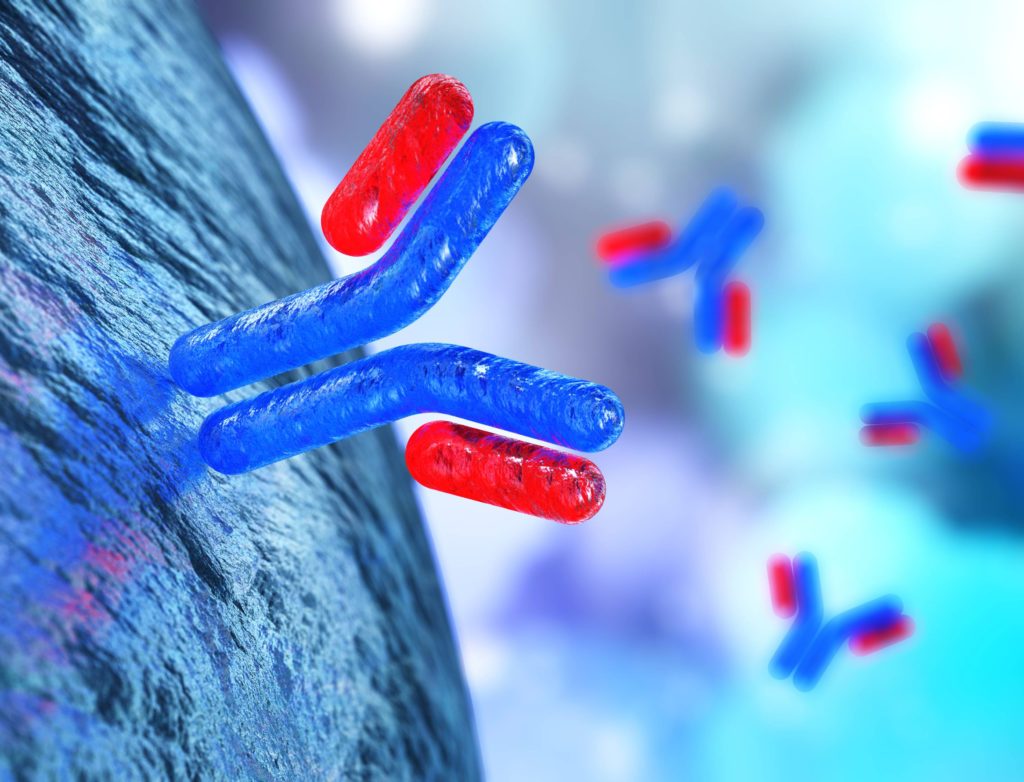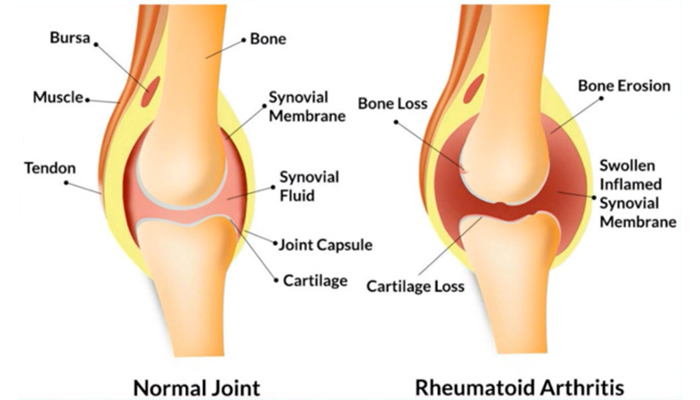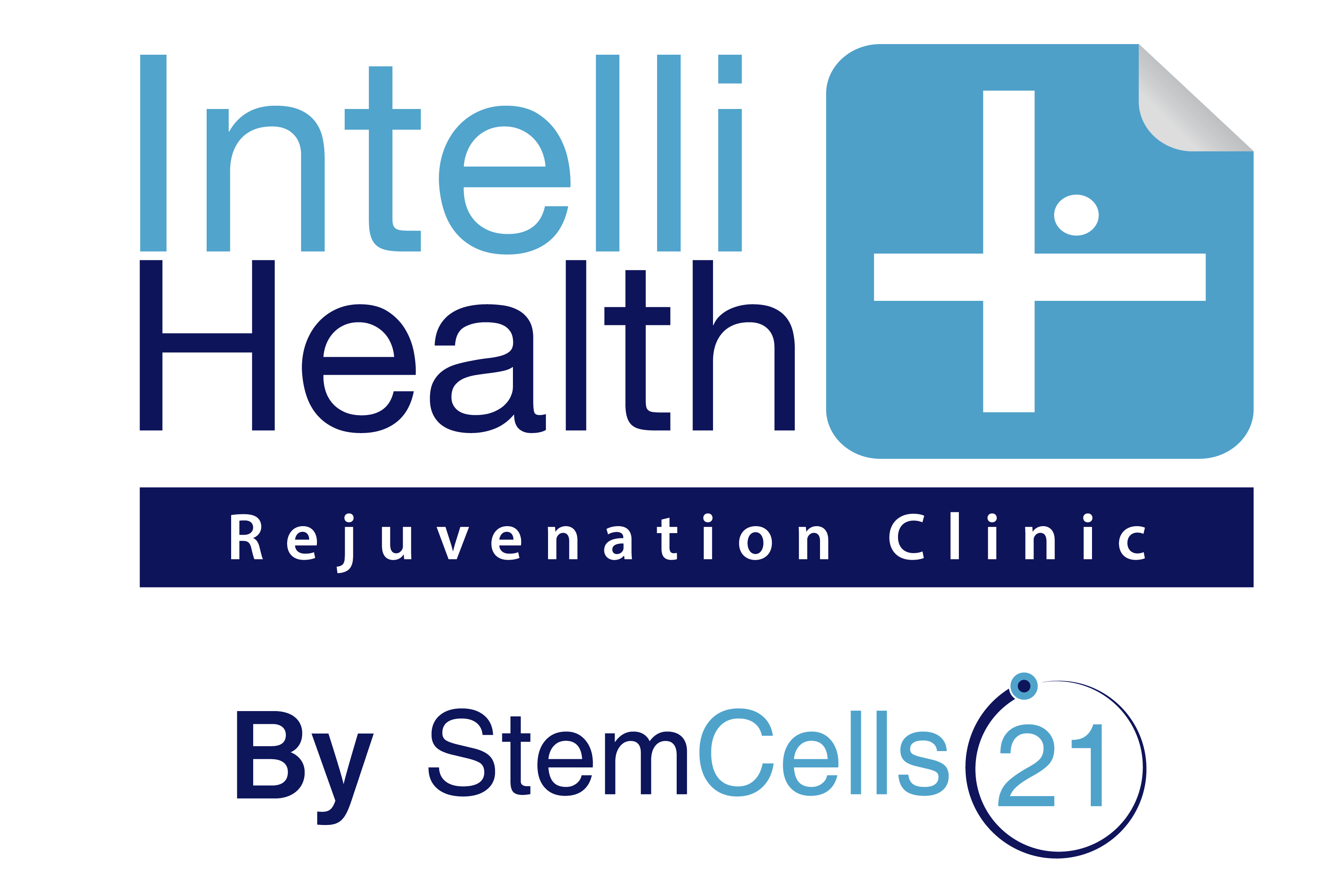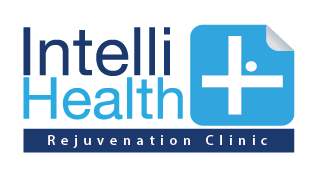Rheumatoid Arthritis

Rheumatoid Arthritis
Autoimmune Disorder Cellular Therapy At IntelliHealthPlus Clinic
An autoimmune and inflammatory disease, which means that your immune system attacks healthy cells in your body by mistake, causing inflammation (painful swelling) in the affected parts of the body.
Rheumatoid Arthritis mainly attacks the joints, usually many joints at once. RA commonly affects joints in the hands, wrists, and knees. In a joint with RA, the lining of the joint becomes inflamed, causing damage to joint tissue. This tissue damage can cause long-lasting or chronic pain, unsteadiness (lack of balance), and deformity (misshapenness).
Rheumatoid Arthritis can also affect other tissues throughout the body and cause problems in organs such as the lungs, heart, and eyes.
80%
of RA Patients are between the ages of 35-50
70%
of RA Patients have wrist and hand problems
90%
of RA Patients have symptoms in the foot
Women are 3 times more likely to develop RA more than men
Causes of Rheumatoid Arthritis
The result of an immune response in which the body’s immune system attacks its own healthy cells. The specific causes of RA are unknown, but some factors can increase the risk of developing the disease.
What are the risk factors for RA?
Researchers have studied a number of genetic and environmental factors to determine if they change person’s risk of developing RA.
Characteristics that increase risk:
- Age. RA can begin at any age, but the likelihood increases with age. The onset of RA is highest among adults in their sixties.
- Sex. New cases of RA are typically two-to-three times higher in women than men.
- Genetics/inherited traits. People born with specific genes are more likely to develop RA. These genes, called HLA (human leukocyte antigen) class II genotypes, can also make your arthritis worse. The risk of RA may be highest when people with these genes are exposed to environmental factors like smoking or when a person is obese.
- Smoking. Multiple studies show that cigarette smoking increases a person’s risk of developing RA and can make the disease worse.
- History of live births. Women who have never given birth may be at greater risk of developing RA.
- Early Life Exposures. Some early life exposures may increase risk of developing RA in adulthood. For example, one study found that children whose mothers smoked had double the risk of developing RA as adults. Children of lower income parents are at increased risk of developing RA as adults.
- Obesity. Being obese can increase the risk of developing RA. Studies examining the role of obesity also found that the more overweight a person was, the higher his or her risk of developing RA became.
Characteristics that can decrease risk:
Unlike the risk factors above which may increase risk of developing RA, at least one characteristic may decrease risk of developing RA.
- Breastfeeding. Women who have breastfed their infants have a decreased risk of developing RA.

The signs and symptoms of RA?
With RA, there are times when symptoms get worse, known as flares, and times when symptoms get better, known as remission.
Signs and symptoms of RA include:
- Pain or aching in more than one joint
Stiffness in more than one joint - Tenderness and swelling in more than one joint
- The same symptoms on both sides of the body (such as in both hands or both knees)
- Weight loss
- Fever
- Fatigue or tiredness
- Weakness
How is RA diagnosed?
Rheumatoid Arthritis is diagnosed by reviewing symptoms, conducting a physical examination, and doing X-rays and lab tests. It’s best to diagnose RA early—within 6 months of the onset of symptoms—so that people with the disease can begin treatment to slow or stop disease progression (for example, damage to joints). Diagnosis and effective treatments, particularly treatment to suppress or control inflammation, can help reduce the damaging effects of RA.
Complications
- Stroke
- Heart Attack
How we treated?
We offer a regenerative approach to Immune Disorders treatment. By assists the body to have the ability to modulate aggressive or depleted immune systems
We create a customized treatment package for each of our patients. However, each of our treatment packages include an individualized combination of the following core components.
Our approach has produced partial or significant improvement to all of our patients’ conditions in a relatively short period of time. Depending on the stage of each patient’s condition, our approach has produced results either almost immediately, or within the first few months following treatment. For even the most challenging cases, we have produced improvement within six months of initial treatment.
Treatment Program Include
Personalised Program
Our team will review medical information and perform a consultation. Then our doctor will design a treatment plan on an individual basis.
Treatment Program
In all treatment plans we provide a comprehensive range of health check up tests, scientifically driven modern treatments, and a range of high impact standard therapies.
Take Home Course
With each of our treatment packages our patients will received a set of personalised compounded nutrition designed to meet their nutritional needs and support treatments given.
Book a FREE Consultation Now
IH+ Contact Form
Contact our international team of medical professionals with language services available in English, Thai, Arabic, Chinese, Spanish, and Russian.
Please indicate your preferred language and we will do our best to accommodate your request.

